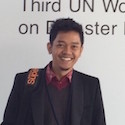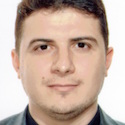Understanding NGOs’ opportunities with OCHA: Follow-up questions
On 14 September, PHAP and ICVA organized the fourth online session of the learning stream on humanitarian coordination, which focused on NGO opportunities to engage with OCHA’s coordination mechanisms.
The event featured presentations by Loretta Hieber-Girardet from OCHA in Geneva and Ian Ridley, Head of OCHA in South Sudan, who provided an overview of OCHA’s five core functions and a series of recommendations for NGOs to better engage with OCHA.
Their interventions were followed by two NGO representatives who shared their experiences of interacting with OCHA’s coordination mechanisms – Mohammed Alhammadi, Coordinator of the Syrian NGO Alliance and Wahyu Kuncoro from Plan International in Indonesia.
Many questions were answered live during the event (which you can listen to in the event recording), but as there were more than there was time for in the event, the guest experts have now answered the remaining questions, which you can find on this page.
“Due to climate change, the frequency and intensity of natural disasters have considerably increased, which means we need OCHA services much more than before. In light of this, why would OCHA try to reduce its overall presence?”
- Research Officer, Pakistan
 Loretta Hieber-Girardet
Loretta Hieber-GirardetIndeed, it is expected that natural disasters will pose an ever increasing threat to lives and livelihoods. At the same time, OCHA, as other organizations, needs to operate in an environment where it is essential to maximize resources and efficiency while delivering on its mandate. OCHA will retain a strong field and regional presence to ensure effective and rapid response to emergencies. At the same time, we see an increasing role for national disaster management authorities as well as regional organizations (for example in the recent response in the Caribbean with CDEMA, the Caribbean Disaster Emergency Management Agency) to lead the response in emergencies.
“Has OCHA undertaken any research on local and NNGOs active participation in the global and country-level cluster system?”
- Coordinator, local NGO, India
 Loretta Hieber-Girardet
Loretta Hieber-GirardetOCHA together with Global Cluster Coordinators carries out an annual review of global humanitarian coordination arrangements where the participation of national NGOs is captured. The level of national NGO participation on Humanitarian Country Teams (HCTs), for example, has increased steadily in recent years and national NGOs participate in over 70% of HCTs. In addition, national NGOs constitute the largest participant group of clusters. OCHA, together with the Global Cluster Coordinators, is working to reinforce national NGO participation in coordination, both within clusters and at the HCT level. The research or data collection is useful to monitor trends, to make sure we are on the right track and help us advocate with partners and donors for greater national NGO participation.
“How does OCHA support NGOs in contexts where authorities try to restrict NGO permission to work in a given country and hinder coordination mechanisms (e.g. declaring NGO forums illegal)?”
- Humanitarian Program Coordinator, INGO, UK
 Loretta Hieber-Girardet
Loretta Hieber-GirardetOne of the important roles that OCHA plays is to advocate for humanitarian space, in other words, for the right of at-risk populations to receive impartial humanitarian assistance. OCHA is a strong advocate with national authorities (and other actors) for the recognition of the role that national NGOs and civil society organizations play in providing humanitarian aid during an emergency. In many countries, OCHA has helped encourage the set-up of national NGO platforms to enable stronger coordination between international and national organizations, and to promote the participation of national NGOs on Humanitarian Country Teams. Where national NGOs are obstructed in providing assistance, OCHA and the Humanitarian Coordinator will address the issue with the authorities and where necessary speak out to ensure that assistance can be provided where it is most needed.

Ian Ridley
Our experience in South Sudan was that by working behind the scenes on quiet advocacy we were able to add our voice (other voices were donors and of course the NGOs themselves) to promoting the value of the NGO Forum; ultimately this resulted in an increased tolerance for the forum.
“What is the interface between UN coordination mechanisms in country and national coordination mechanisms (where they exist)? Which one takes precedence? Does OCHA support these national mechanisms (and seeks to reinforce them) or does it create parallel systems?”
- Humanitarian Partnership Coordinator, INGO, Switzerland
 Loretta Hieber-Girardet
Loretta Hieber-GirardetInternational humanitarian mechanisms are established to reinforce national coordination as the government is responsible for providing assistance to persons within its territory when an emergency takes place. Where national authorities do not have the capacity to provide assistance, international coordination is set up to reinforce what exists, and to ensure that gaps are addressed. OCHA works closely with national authorities ahead of emergencies to ensure that preparedness actions are taking place. During an emergency, the Humanitarian Coordinator, supported by OCHA, plays a critical role in ensuring a close interface and collaboration between national authorities and international humanitarian response on a range of issues, including ensuring that issues such as the protection of civilians and international humanitarian law are addressed. The interface take the form of regular exchanges, joint coordination of meetings, briefings, etc. OCHA also stresses the need for humanitarian coordination to be adapted to each context and to evolve as the situation changes. An annual review of coordination should take place to ensure that it is still appropriate to the context. Where possible, planning takes place in consultation with national authorities to ensure that humanitarian programming contributes to national response efforts.
"How does OCHA try to keep NGOs and other humanitarian actors motivated to engage in coordination activities - that is, does OCHA has any strategy to promote the added value of coordination among humanitarian actors, even when it cannot offer joint programming or funding to NGOs?"
- Response Coordinator, local NGO, Kenya

Ian Ridley
Two key areas come to mind: increased coherence and prioritization through coordination activities, and that the Humanitarian Programme Cycle (HPC) does not only save lives and reduces suffering, which should appeal to all NGOs, but also makes more sense to government donors, so those NGOs that benefit from those funding streams clearly have an interest in demonstrating they work in a coordinated fashion.
More broadly (including donors, government, and other stakeholders), there is typically a strong need in emergency contexts to make sense of the situation and come up with a consistent narrative: things like mandate bias, the typical chaos of an emergency, and funding shortfalls, can all increase the risk of a skewed narrative, and it is OCHA’s role to try to overcome the effects of these and give an objective assessment of the situation, consequences, and proposed actions.
"Could you give more insight into OCHA’s role when humanitarian actors are leaving the country due to security issues (for example the Red Cross partially suspending operations in South Sudan)?"
- Assessment Specialist, INGO, Switzerland
 Ian Ridley
Ian RidleyThe example cited was a localized and time-bound suspension of activities rather than an agency leaving the country. Every agency has to reach its own conclusions on presence, and it is OCHA’s role (through tools such as 5W) to ensure that coverage, gaps that may arise are communicated and covered. In addition, through its support to the Humanitarian Coordinator (HC), OCHA may conduct advocacy work on the risks to humanitarians and the possible consequences of withdrawal of agencies.
"In your opinion, do you think that under the localization agenda is harder to ensure that NGOs comply with humanitarian principles such as neutrality and impartiality?"
- Anonymous participant

Ian Ridley
I would say “adhere to” rather than “comply with” as there is not really a principle policing function in the sector! Nevertheless, there are undoubtedly additional pressures that are more serious for, though not exclusive to, local actors particularly in conflict settings. It is important therefore that continual awareness raising on humanitarian principles be at the heart of OCHA’s work.
“In your opinion, what fuels the competition among NGOs and how could OCHA deal with this issue in order to improve coordination and effectiveness?”
- PhD candidate, Ireland

Wahyu Kuncoro
Organizations’ grant portfolios are one of the aspects that fuels competition among NGOs, that is, to be recognized in front of donors who might attend coordination meetings. I believe, if OCHA is able to encourage NGOs to work in a collaborative way to respond emergencies, that this might also encourage donors to establish collaboration between two or more organizations who have different expertise that can complement each other, as one requirement for NGOs to be granted funds.

Mohammed Alhammadi
Some factors can fuel competition among local NGOs, for instance:
- mandates with hidden non-humanitarian objectives;
- limited funding resources;
- access constraints to people in need;
- and similarities in their objectives and working sectors and in the geographical areas they work in.
OCHA can play an important role to reduce this by:
- asking NGOs to have a purely humanitarian mandate (OCHA should restrict to dealing with humanitarian NGOs – in the Turkey hub, OCHA opened the door for all civil society organizations and many times give them leading position in representing humanitarian actors even though they are not purely humanitarian NGOs);
- avoiding to interfere in inter-NGO issues;
- supporting inter-NGO coordination mechanisms (i.e. NGO forums and networks) and their capacity building (capacity building for NGOs, especially in the fields related to humanitarian policies and principles);
- and encouraging local NGOs to commit to humanitarian principles and to develop their internal governance and policies, for instance, by giving a bigger space to the most organized and most principled NGOs.
“In the context of the Syria response, Mohammed, what are the communication channels that you and the NGOs that form the Syrian NGO Alliance do use to coordinate and communicate with OCHA at all levels?”
- Researcher, academia, Germany

Mohammed Alhammadi
NGO networks and forums mainly communicate through the Inter-Cluster Coordination Group. They also have a voice in the Humanitarian Country Team (HLG in Turkey), Whole of Syria Inter-Sector Group, and Whole of Syria Strategic Steering Group. NGOs are directly involved in the Turkey-Based Pooled Fund, Humanitarian Information Sharing Meeting in Arabic, and through the clusters. There are also direct meetings with NGOs or through NGO networks and forums, and working groups have been created, such as the Communications WG.
You can access the rest of the Q&A as well as further resources on the event page.